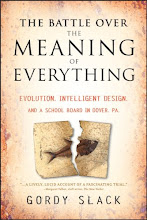There’s a movie I can never remember the name of. It’s about a man who has no short-term memory. It begins with the letter “M,” but it isn’t a person’s name. "Manifest?" No, it has something to do with memory. I know it! I know it! I’ve seen the film twice and it is excellent, a tour de force, but I can’t remember the name! "Manifest!" No! Damn!
In this movie—it’s on the tip of my tongue--Guy Pearce plays Leonard, who suffers from anterograde amnesia, which is a loss of the ability to create new memories. Memories from before the trauma that caused the amnesia remain intact and accessible. New memories never make it from the hippocampus, where memories first form, to wherever they’d be stored for long-term retrieval. Leonard earned his amnesia by interrupting two men who were attacking his wife; he gets a hard whack on the head. He can recall events from before the accident, but nothing new sticks.
To compensate, Leonard surrounds himself with mnemonic aids, fills his pockets with annotated Polaroid photographs and Post-Its. His most striking device, though, for those bits he really can't afford to forget, is the drawing of rich-text tattoos all over his body.
It’s a murder mystery, told in reverse, that is stunningly, delightfully, reelingly complex. The plot gets less and less clear the more you learn. Until the end, when everything becomes clear...or at least coherent.
Leonard's memory loss is so poignant, maybe, because it's a caricature of the normal human condition. Our experience leaks through the sieves of our memories, while only a few rare bits make their way to long-term storage. It's hard not to mourn the extravagant waste of that. But it's also the secret to our sanity and the coherence of our lives; the trick to memory is not just knowing what to preserve, it's the ability to drop whatever dilutes and confuses the story without adding value. And as this movie reveals, the forces that determine what we preserve, and the stories we weave with that material, are not always conscious. Or honest. You can play the film instantly on Netflix and if you’re interested in memory you should.
Of course, there’s an epilepsy angle: one of the most common causes of anterograde amnesia is temporal lobe surgery, usually for epilepsy with a focus in the medial temporal lobe. Also, some kinds of temporal lobe seizures themselves mess with the same brain areas, and can cause temporary bouts of anterograde amnesia. The hippocampus, and all of the stuff surrounding it, regulates the acquisition of short-term memory. Damaging it is like firing the librarian who files the books to the shelves. New volumes keep coming in, and you can see them as they do, but they quickly get lost in the pile and are impossible track, let alone read.
Memento! Of course, the movie is called Memento!
My next blog should be about TOT (tip of the tongue), a bonafide neurological phenomenon. It's also called Presque vu, from the French for “almost seen.” You know the feeling, it’s when a word or name you know well is right there, but not accessible. "Memento" is one that I, for some reason, have a hell of a time accessing. William James described TOT, back in 1890, as “a (memory) gap that is intensely active.” It feels like there’s a repulsive force involved, not just a lack of connection. That’s why we sometimes need to Jerry-rig our own memories, to overwhelm those "intensely active" gaps. Maybe I should have “Memento” tattood on my thumb. What do you think?



2 comments:
Great post. Thanks. I liked "Eternal Sunshine of the Spotless Mind" pretty well too, although it had some flaws. Maybe I'll watch "Memento" this weekend
(wait for it)
if I remember.
Let me know what you think of Memento. I'll see Eternal Sunshine again, too. Honestly, I only vaguely remember it, like an old dream. By the way, how do you thing we're able to distinguish memories of films we saw 30 years ago, experiences we had, and dreams we had? Our filing system must be pretty clever.
Post a Comment